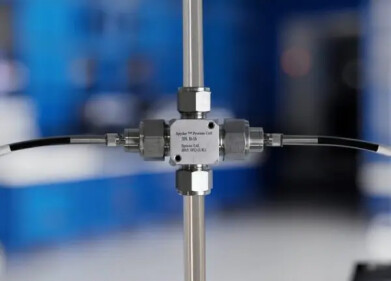Analytical Instrumentation
Are Diesel Farms a Disaster for the UK?
Oct 27 2016
Despite being a global leader when it comes to eco-friendly practices, the UK is no stranger to environmentally controversial projects. The latest dispute comes in the form of plans to fund a major expansion of diesel farms, with 246 new projects qualifying for a government subsidy scheme intended for eco-friendly ventures.
The commentary comes from green think-tank Sandbag, with analysts warning that if the diesel projects enjoy the same success that’s been seen in previous years, they could qualify for consumer-funded subsidies worth up to £800 million, with the benefits set to materialise in the 15 years following 2020.
Diesel plants drown out efficient counterparts
While the subsidies are intended for large, highly efficient new power stations, funding is being guzzled up by small, pollution heavy new diesel generators. Despite the best efforts of the government to deter these high pollutant diesel developers, Sandbag analysts assert that they’re more likely than ever to benefit from the latest round of the scheme. So much so that 246 new diesel projects qualify, with a combined capacity of almost 4GW. Together, this tops the 3.2GW capacity of the next generation Hinkley nuclear plant.
Diesel subsidies on the rise
It’s a trend that appears to be on the rise, with 2015’s scheme awarding £175 million of subsidies to 650 megawatts of new diesel generators. While not all 246 of the qualifying projects have confirmed that they’ll be using diesel, Sandbag analyst Dave Jones asserts that at least 1.1GW are registered under gas or diesel licenses, while around 2.5GW have not yet disclosed what fuel type they’ll operate on. Needless to say, diesel will likely be the fuel of choice, as it’s markedly cheaper than its gas counterpart.
Dirty air, and a dirty reputation
For the UK, the mass funding of diesel plants could prove to be a national disaster. Not only would the UK suffer from decreased air quality due to pollutants, but the scheme would also embarrass the government at a time when it’s supposed to be focussing on slashing carbon emissions, not funding them.
At present, Sandbag’s predictions are unverified, as neither the government or the National Grid has confirmed how many diesel plants have qualified. The Department of Business, Energy and Industrial Strategy has responded to the criticism, with a spokesperson reminding Brits that “Diesel generation accounts for less than 0.1pc of total energy generation and will only ever be used for very short periods of time to provide instant electricity when it is needed.”
The department also stresses that any new diesel systems will need to comply with new emission controls, regardless of how big or small their capacity.
Pollution is an ever present concern, not only for the energy sphere but also for the oil and gas industries. ‘Optimization of EPA Method 325 for the Fast, Accurate and Precise Monitoring of VOCs Around Oil Refinery Fencelines’ explores new technologies designed to analyse VOCs and empower refineries with enhanced throughput and laboratory efficiency.
Digital Edition
PIN 25.5 Oct/Nov 2024
November 2024
Analytical Instrumentation - Picturing Viscosity – How Can a Viscometer or a Rheometer Benefit You? - Sustainable Grease Formulations: Evaluating Key Performance Parameters and Testing Method...
View all digital editions
Events
Dec 03 2024 Dusseldorf, Germany
Dec 08 2024 Anaheim, CA, USA
Turkey & Black Sea Oil and Gas
Dec 11 2024 Istanbul, Turkey
Dec 19 2024 Aurangabad, India
Jan 20 2025 San Diego, CA, USA




















